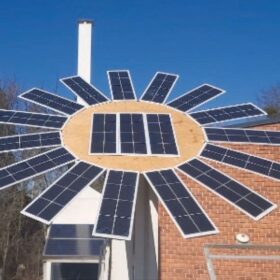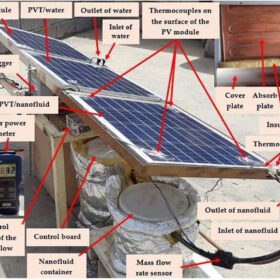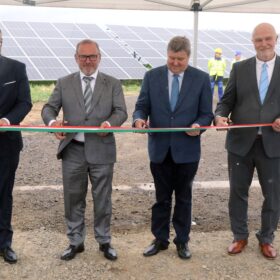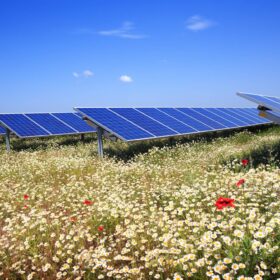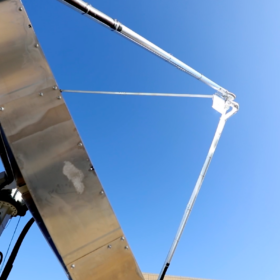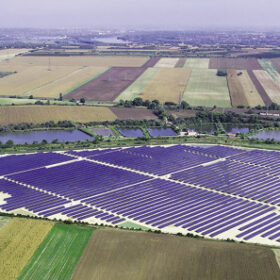New solar tree design offers improved module cooling, lower shading losses
Researchers in Hungary have proposed to build photovoltaic trees with a significant distance between the solar panels. The proposed sunflower-shaped design reportedly reduces shading losses between the panels while improving cooling and heat dissipation.
Qvantum plans heat pump factory in Hungary
Swedish manufacturer Qvantum has announced plans to set up a heat pump factory in Hungary. The new facility is expected to have an annual production capacity of 1 million heat pumps.
Experimental photovoltaic-thermal system based on zirconium oxide nanofluid
An international research group has designed a new photovoltaic-thermal module configuration that uses zirconium oxide as a cooling agent. The system is reportedly more efficient than water-cooled counterparts in reducing its operating temperature.
Hungary’s largest solar power plant goes online
Mezőcsát, a 233 MW solar plant in Borsod-Abaúj-Zemplén, Hungary, has officially commenced operations.
Hungary cements position in solar gigawatt club
Hungary, one of Europe’s gigawatt-scale solar markets, is a hub of bustling activity. However, government policy shifts and grid constraints are casting a long shadow over growing demand for solar energy. pv magazine recently spoke with Ádám Szolnoki, the president of the Hungarian Photovoltaic Industry Association (MANAP), about the latest market developments.
Building nature-friendly solar parks
Hungarian company SolServices has published a white paper outlining ways to make solar farms more compatible with nature and wildlife, from insects and amphibians to birds, bats, rodents and big game.
The Hydrogen Stream: Swiss team sets record solar-to-hydrogen rate
Researchers from Switzerland’s École Polytechnique Fédérale de Lausanne have unveiled a new solar dish plant design, while Plug Power has delivered its first electrolyzer system to Europe.
Dutch city installs solar footpath
Hungary’s Platio has inaugurated a solar footpath in the Dutch city of Groningen. The installation consists of 2,544 monocrystalline Patio solar pavers with a 21.8% efficiency rating. It will generate 55,000 kWh of electricity per year and can purportedly withstand a pressure of 2 tons without microcracks.
Hungarian solar is on the rise but much needs to be resolved
PV deployment is gathering pace in the EU member state but grid capacity shortfalls and unpredictable shifts in government policy need to be addressed if the nation is to harness its full solar – and European energy security – potential.
Croatia, Hungary, Portugal to face EU sanctions for not promoting renewables
The European Commission has decided to refer three member states to the Court of Justice of the European Union (CJEU) for failing to turn the EU Renewable Energy Directive into national legislation. The commission is now requesting financial sanctions.
